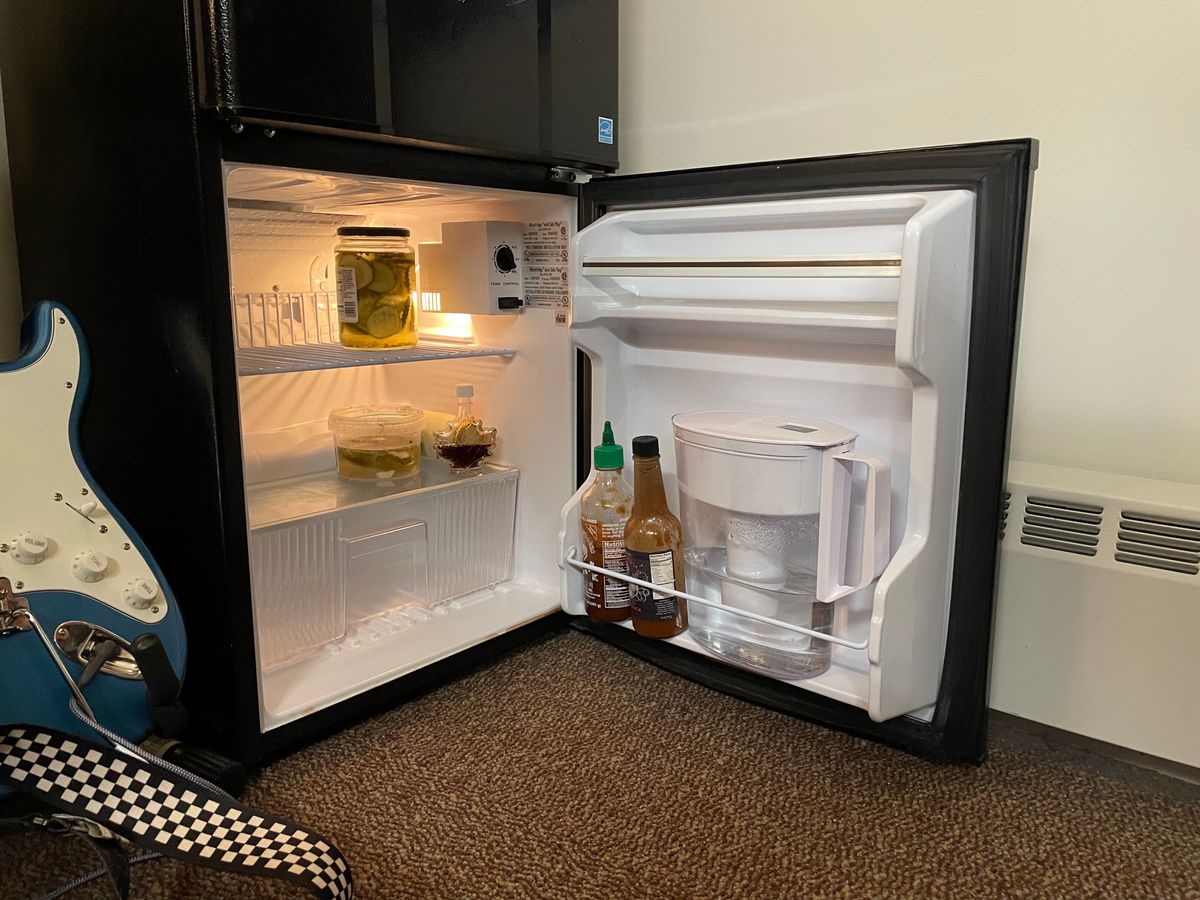Fridge and Microwave Policy Change Causes Uproar
Beginning next fall, students will have to buy their own fridges and will not be allowed to have microwaves in their rooms. The changes have caused an uproar among students, spawning a Change.org petition with more than 450 upvotes.

Concerns around mold spread, constant maintenance, and a looming pandemic-era funding deadline have pushed Campus Facilities and Student Affairs to ban microwaves and re-locate microfridges from all dorm rooms starting in the fall of 2025.
The decision has caused an uproar among the student body. Posts lamenting the change dominated on-campus social media last week, and a number of questions submitted to the Board of Trustees’ recent town hall meeting mentioned fridges and microwaves, though the board had nothing to do with the decision.
The current stock of microfridges will either be donated to local organizations or repurposed. Students will still be allowed to purchase their own fridges as long as they are stored off-campus during the summer. Students may not, however, purchase their own microwaves, although one will be provided in each residence hall common space.
Many student complaints suggested that the new policy would be hard on low-income students, with personal fridges becoming a new marker of socioeconomic status. A Change.org petition titled “Stop the Removal of Campus Microwaves and Fridges at Amherst” had garnered 450 signatures as of Tuesday night. Beyond the impact on low-income students, it cited a number of reasons to oppose the change, including that it would be hard on individuals with allergies and create waste if students discarded fridges after graduation.
In an interview with The Student, Chief Communications Officer Sandy Genelius explained the logistical reasons behind the decision.
“Prior to Covid, microwaves were prohibited in residence hall rooms: they require a significant electrical load that the building cannot support and, when microwaves and/or fridges and/or irons/hair dryers run simultaneously, the breakers will flip and can create a fire hazard,” Genelius said.
Genelius said that cleaning the fridges at the end of each academic year caused a strain on the facilities teams, and she noted that there are pressing concerns about mold collecting within microfridges and spreading across residence halls. She also said that the “pandemic-era special funding” used to provide microfridges will soon be unavailable.
Many students, however, are irritated by the “purchase-your-own-fridge” solution, particularly by its consequences for lower-income students.
“Buying my own fridge is inconvenient. I use Amherst’s subsidized storage option and was only allowed to use three boxes. I don’t have a home here. Where would I store it?” Jessica Lomo ’27 said. “Fridges aren’t cheap. That’s another cost I’m going to be burdened with.”
Genelius wrote that the Office of Student Affairs is aware of these concerns and is open to discussing additional solutions.
“We are committed to finding solutions that support everyone. We’re exploring options such as an off-campus rental program or offering donated fridges at the annual yard sale,” Genelius said.
Students are also upset with the way the policy change was communicated. Most students were unaware of the policy until Sept. 16, when a student posted a screenshot of the change to the campus-wide GroupMe. Genelius, however, defended the college’s announcement of the change.
“Every year, I send an email to all students highlighting the Student Code of Conduct, updates to current policies, and announcements of any new ones. The Community Living Policy was part of that email this year. We included a direct link to the updated policy and highlighted the microfridges decision with a special pop-out box to ensure it was not hidden and indicated that this change will be coming in the next year,” she said.
“Our goal was to ensure that all students were aware of these updates; we’re here to answer any questions and work together on the next steps.”





Comments ()